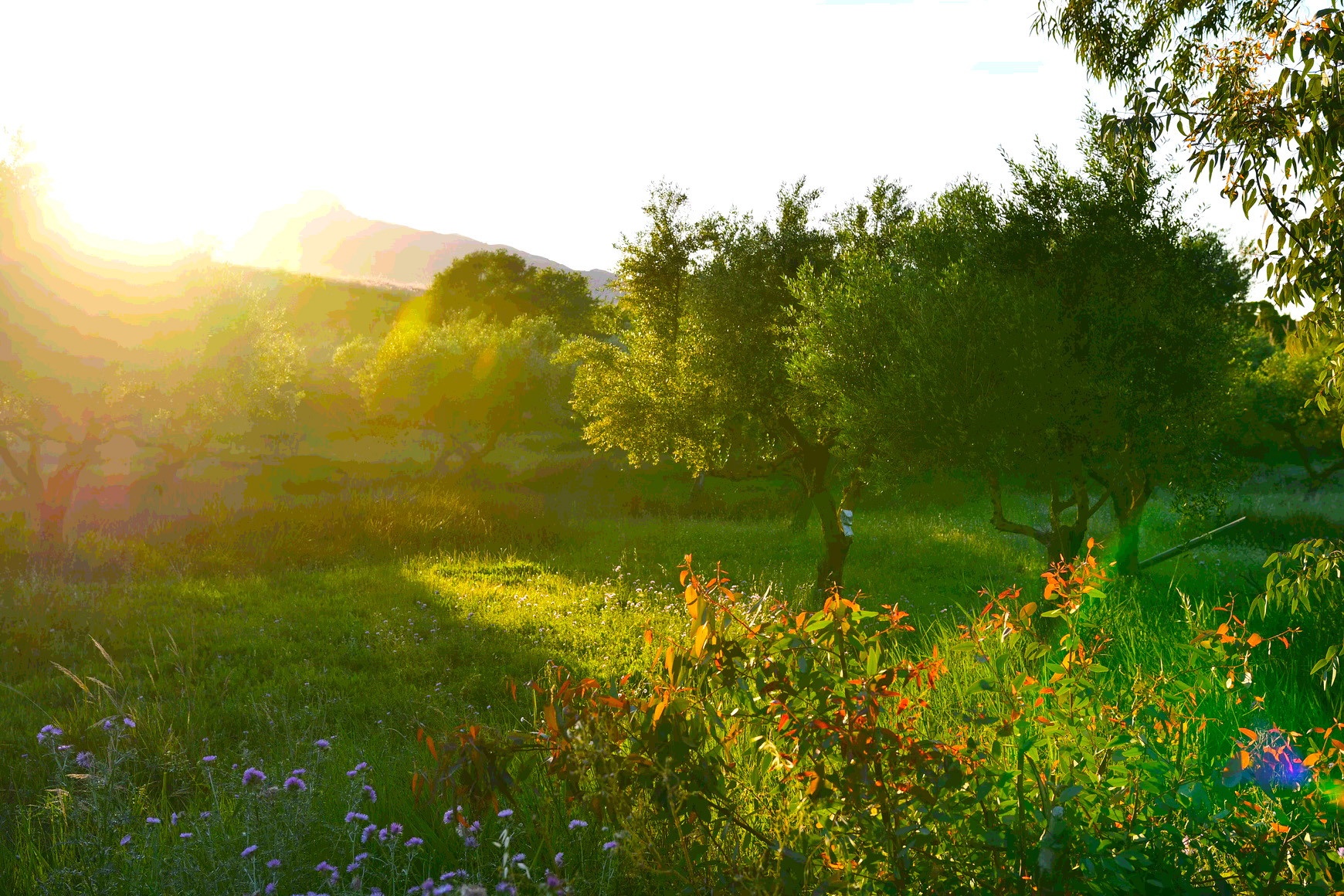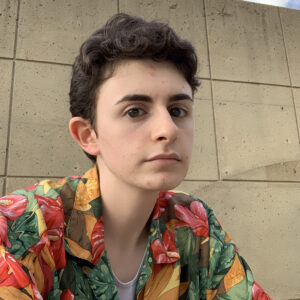In 5815, ten unconnected Jews in disparate locations will have concurrent experiences of arriving at gan eden. It will be revealed that the pardes four were simply too small a sample size.
The ten Jews from disparate locations will arrive in the corners of the orchard, and they will all know the others as they stand. The ten Jews from disparate locations will, at the suggestion of one, use the buddy system as they wander paradise, lostfound.
When the first Jew gazes for too long at the divine presence, the second Jew, an atheist, will offer him sunglasses. When the third Jew grabs huge mouthfuls of honeycomb from the beehives, the fourth Jew – an aspiring apiarist, though she lives in a sixth-floor walkup – will find cheese to drizzle it on.
The fifth and sixth Jews become heretics together, a new Adam and Eve. The seventh Jew will lose their mind completely, but the eighth is an experienced tripsitter, so she’ll be there to lean on for the cosmic comedown.
Godsparks and divine love are all fine and good, but sooner or later these Jews – from Nashville, from Rio de Janeiro, from Marseille, from Hong Kong – will need a shared language, for how else could they argue? So, walking through the garden, the ninth and tenth Jews will name.
The ninth Jew is a high school teacher. She’s good at making language vast and loving, like a shelter, like a protest. She will see each garden-dweller, be it animal, plant, or fungi, and give it a plain name (p’shat, if you’re so inclined; and the rest of the meanings hidden within). Then she will pass each creation, new-named, to the tenth Jew, who is your father, who will be weeping.
(Your father, by the way, hasn’t cried in forty years or so, and you’ve never totally learned if it’s repression, deep wisdom, or shallow tear beds, and you won’t know, even now, if these tears are tears of release, grief, or hay fever.)
Your father will embrace each of the garden’s creations, and his tears will be as a mikveh.
(He will remember their names; later, he will write them into poems, on your back porch, on a yellow legal pad. Sod hidden behind coffee stains.)
After the evening and after the morning and into the evening again, the garden will be humming with laughter, shouting with names, and your father will disappear with the rest of the ten to keep the minyan. They will leave in peace and return home in time for Shabbat.
Last month, a group of New Voices Jewish Media Fellows published a set of predictions for the next half century of the Jewish calendar. This short fiction by Jewish Media Fellow Eli Hurwitz expounds upon one of those predictions. You can read the full set of short Jewish Futurisms here.

